The last session of GeoMonday 2015 was again a supreme gathering of geo-addicted tech people and a set of fantastic speakers. We had a last minute commitment from Gabriele Negro (kietsy). He joined the presentation canon as the 4th speaker. The session was kicked of by Maximilian von Garnier (Yelp), followed by David Yu (Scoped.co) and Robert Tochman-Szewc (Jodel).
It was interesting to see, how much messaging, advertisement and place discovery nowadays seamlessly blend together and that often the related spatial content is not anymore associated with a map view.
For those who missed the session, here some videos of our speakers:
And some presentations:
Finally here some impressions: https://www.flickr.com//photos/136953217@N03/sets/72157662508315585/
We wish all presenters, guests and followers of GeoMonday a merry christmas and a happy new year. Please bear with us, as we are coming back in 2016.
PS: Have also a look into our newly planned head organization and consider becoming part of it: http://geoit.org






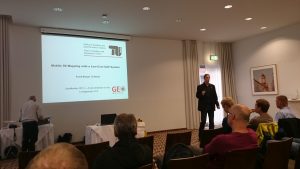
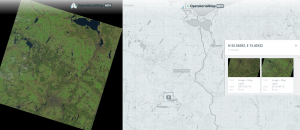
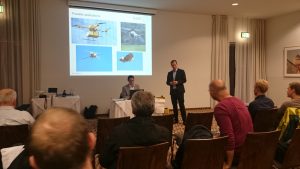
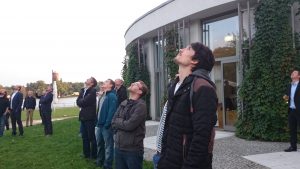
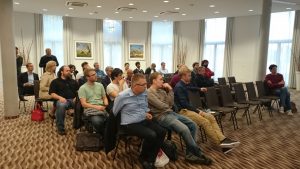
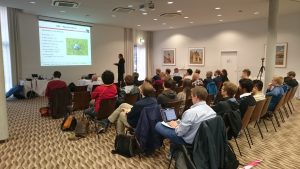

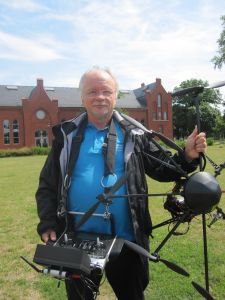 Arno Fischer is a Professor for Operating Systems and Computer Networks at the University of Applied Sciences Brandenburg (FHB). He has been working on drone technologies: Anticollision Systems (Detect and Avoid), Attitude Control, Safety and Security for Drones, Civil Applications and Use Cases with Drones and Teaching Concepts. On Behalf of FHB he is member of UAV-DACH and DIN (NA 131-01-01 AA Arbeitsausschuss Unbemannte Luftfahrtsysteme).
Arno Fischer is a Professor for Operating Systems and Computer Networks at the University of Applied Sciences Brandenburg (FHB). He has been working on drone technologies: Anticollision Systems (Detect and Avoid), Attitude Control, Safety and Security for Drones, Civil Applications and Use Cases with Drones and Teaching Concepts. On Behalf of FHB he is member of UAV-DACH and DIN (NA 131-01-01 AA Arbeitsausschuss Unbemannte Luftfahrtsysteme).
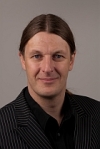 Frank Neitzel is a Professor for Geo-IT and Geodesy at the Technical University (TU) Berlin. He has a lot of experience in building affordable drones for 3D Geo-data collection and already published related papers.
Frank Neitzel is a Professor for Geo-IT and Geodesy at the Technical University (TU) Berlin. He has a lot of experience in building affordable drones for 3D Geo-data collection and already published related papers.
 Center
(EASC) in Germany. His R&D focus is on Unmanned Aircraft Systems, technology impact assessment in context of legal frameworks and stakeholders. He is currently promoting Unmanned Aviation, like UAV DACH and UVS International in close cooperation with national and international associations. Aim of this engagement is facilitating broad civilian UAS applications by addressing questions like weight classes, visibility minima or insurance context.
Center
(EASC) in Germany. His R&D focus is on Unmanned Aircraft Systems, technology impact assessment in context of legal frameworks and stakeholders. He is currently promoting Unmanned Aviation, like UAV DACH and UVS International in close cooperation with national and international associations. Aim of this engagement is facilitating broad civilian UAS applications by addressing questions like weight classes, visibility minima or insurance context.